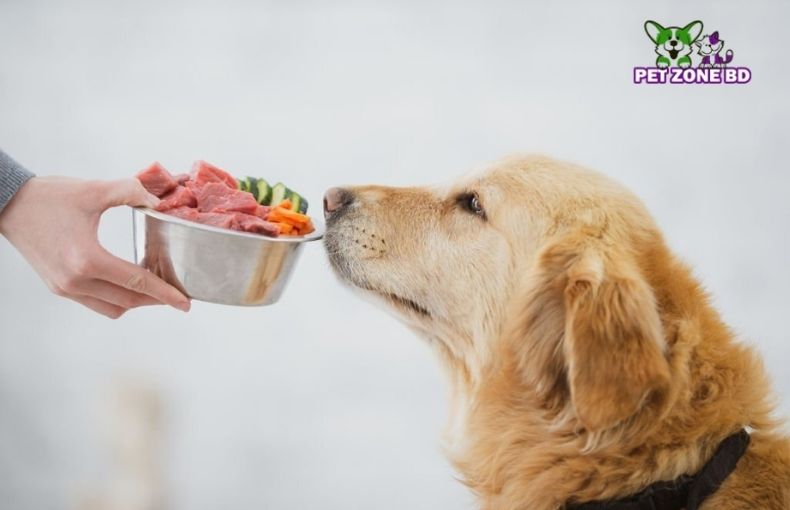
Can Cats Eat Dog Food?
So, to address the question of whether cats can eat dog food, the quick answer is yes, but only in an emergency or for a limited time. This is due to the fact that cats and dogs have distinct nutritional needs. Dog food is deficient in the essential nutrients that cats require to live a long and healthy life. Cats are carnivores, which means they only consume meat.
Because dogs are omnivores, meaning they consume meat, grains, and vegetables, they require a more diverse diet than just meat to satisfy their nutritional needs.
Before we get into the real gritty of why your cat can’t consume dog food indefinitely, it’s necessary to understand the fundamentals of cat and dog nutritions and the differences between cat and dog nutritional requirements.
What do cats require in terms of nutrition?
Cats, as carnivores, require a diet rich in protein, lipids, and taurine. Taurine-rich diet is essential for cats. Taurine is an essential amino acid for healthy heart function, eyesight, and reproduction.
Because taurine is exclusively produced in animal-based protein, all cats must consume meat to satisfy their nutritional needs. Cat diets are abundant in protein, calories, and fat, as well as the essential amino acid taurine.
This is what good cat chow looks like:
- Ingredients derived from natural, complete foods
- Animal proteins of superior grade (at least 30 percent)
- Fats derived from animals that are good for you (about 15 percent to 20 percent)
- Carbohydrates and fiber that are easily digestible
- Vitamins, minerals, enzymes, and fatty acids are all essential.
- There are no by-products, fillers, or artificial additions in this product.
Read Also: What To Feed Cats When Out of Cat Food
What do dogs require in terms of nutrition?

Dogs’ dental structure and digestive system have evolved to an omnivorous diet due to their nutritional requirements. This indicates that, in most cases, dogs may achieve their nutritional requirements by consuming a mix of plant and animal foods.
The quality and digestibility of these vital components of the dog’s food are more important than the supply of proteins and fats.
If dogs are provided a well-balanced vegetarian diet, they can flourish. An all-meat diet, on the other hand, would be imbalanced and would not cover all of a dog’s nutritional needs.
Minerals, vitamins, certain required amino acids (from proteins), and particular essential fatty acids must all be included in a well-balanced diet (from fats).
These elements are required to create and maintain tissue as well as carry out biological reactions, and the amounts required vary depending on the dog’s life stage (puppy, adolescent, adult, pregnancy, senior).
These important nutrients must be included in the dog’s daily diet and are involved in all of the body’s fundamental activities. For several nutrients, a minimal dietary need has been defined. The maximum tolerated quantity of various nutrients has been determined, as have the toxicity outcomes.
What are the distinctions between dog and cat foods?
While we share our hearts and homes with both dogs and cats, nature has shaped them into quite distinct creatures with very different dietary demands throughout time.
Cats are obligate carnivores, which means that all of their bodily systems require a diet of meat-based proteins and animal fats to function effectively.
On the other hand, dogs are true omnivores. An omnivore’s diet is more versatile, as they can consume both meat and veggies. The nutritional requirements of cats are not met by a dog food diet.
Carbohydrates such as rice and corn are good for cats in modest amounts, but they are not required in their diet. In dog food, though, they generally play a big part.
Read Also: Difference Between Kitten and Cat Food
Is it OK to feed dogs cat food on a regular basis?
Although dog food isn’t harmful to cats, it shouldn’t be substituted for cat food on a daily basis. Even though dog food isn’t the ideal nourishment for cats, they can consume it without becoming sick. Cats, on the other hand, cannot subsist on dog chow alone as a long-term diet.
Cats lose muscle mass and become sluggish if they don’t get enough protein. In cats, taurine is important for eyesight, digestion, heart function, fetal development, and maintaining a strong immune system.
Although a dog might theoretically survive on cat food alone, it is not recommended. Because the calorie density, high protein levels, and high fat dosages aren’t appropriate for canine gastrointestinal tracts, it might result in obesity or even pancreatitis.
While your dog can safely taste some of your cat’s food, a diet based primarily on cat food will not provide your dog with the complete nutrients they require.
The Bottom Line
Cats can consume dog food for a short time, but not indefinitely. When your pets exchange meals for a short length of time, there is no reason to be concerned. While a single taste of your dog’s food won’t harm your cat, long-term feeding of dog food might cause malnutrition in your cat.
